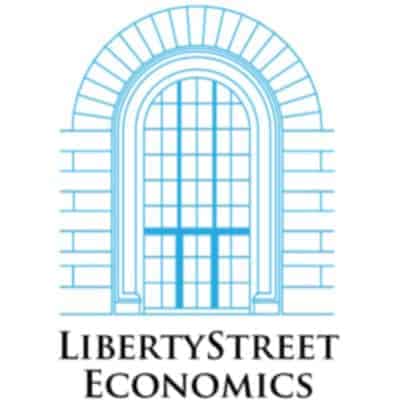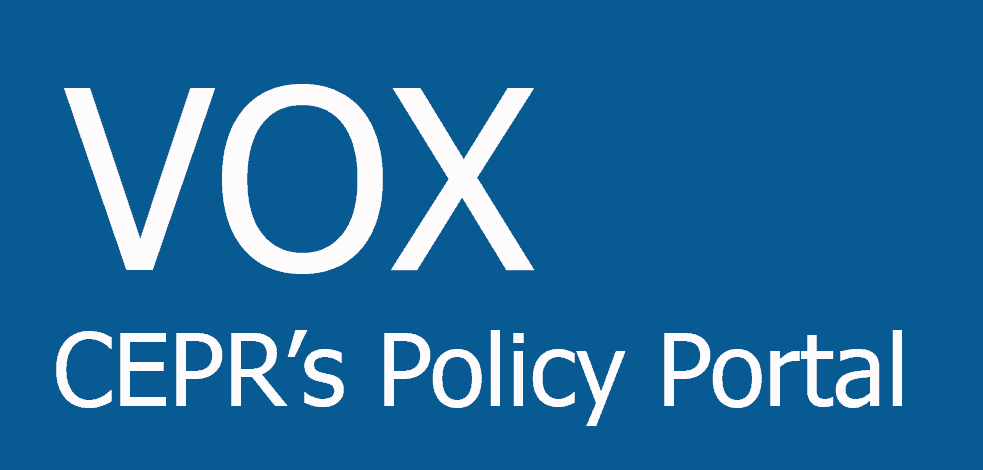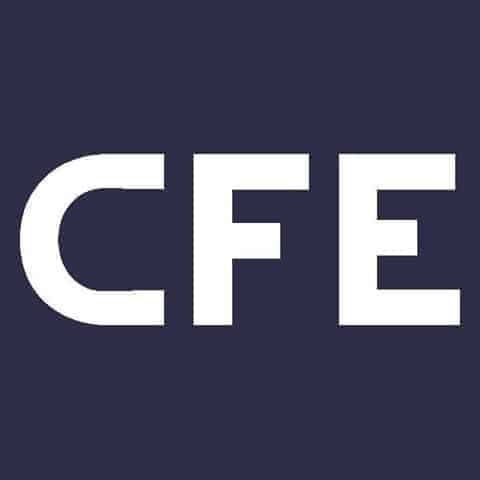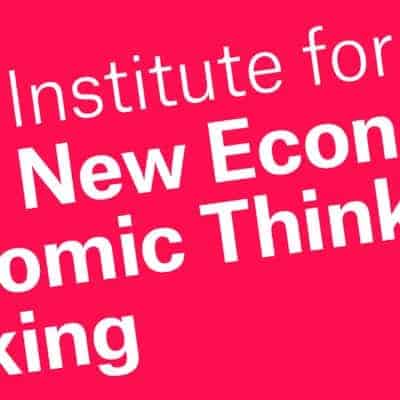Welcome, and thank you for joining us for the 7th annual Top Economics Blogs list! We are happy, once again, to introduce you to a freshly updated list of economics blogs for 2025.
As always, our winners list provides blogs for many different audiences, ranging from budding economic enthusiasts to seasoned academics. The list also covers a variety of economics topics, whether it be traditional economic theory or the application of economics to current events and issues.
In this meticulously curated list, we’ve condensed the most unique elements of each blog into short descriptions, so that you can see which ones catch your eye.
For 2025, a few newcomers have emerged, while many mainstays from previous years are present as well. Like previous years, we’ve done our best to capture the blogs which stand out for their quality rather than their popularity. As such, the list is an eclectic group that represents a wide range of tastes and perspectives.
Regardless of your school of thought or political affiliation, you can find valuable new content in this list of engaging, high-quality economics blogs.
So, without further ado, here are our top 100 economics blogs for 2025, in no particular order.

GENERAL ECONOMICS BLOGS
General economics blogs provide an overview of economic concepts and principles, and they cover a variety of economic topics. They are a solid choice for readers who are looking for an introduction to economics, or who would prefer learning about a number of economic fields at a glance.
MARGINAL REVOLUTION

Marginal Revolution features articles, links, commentaries, and fascinating debates on the real-world implications of important economic issues. Founded in 2003 by Professors Tyler Cowen and Alex Tabarrok of George Mason University, Marginal Revolution is a popular choice among economics enthusiasts.
MISH TALK

Mish Talk is written by Mike “Mish” Shedlock, a successful investment advisor with SitkaPacific Capital Management. His daily posts cover global economics and focus on macroeconomic trends around the world. Popular and highly praised, Mish Talk is a must-read blog.
ROBERT REICH

This weekly blog makes an excellent general economics digest. Robert Reich’s blogging style is best described as easy-to-understand, thought-provoking, and direct. A former secretary of labor for the Clinton administration, Reich was named by Time Magazine as one of the ten most effective cabinet secretaries of the 20th century. He is currently Chancellor’s Professor of Public Policy at U.C. Berkeley and is the author of numerous books.
ANGRY BEAR BLOG

Angry Bear once again makes the 2025 winners list as a multi-authored blog in which each author has his or her own unique area of expertise. Authors include economists, tax law experts, historians, and business professionals. The wide range of topics it covers makes Angry Bear a solid choice for readers looking for an overview of economics issues.
MANAGERIAL ECON

Managerial Econ is the perfect blog for anyone wanting to solve managerial problems and make business decisions using economic principles. Hosted by the authors of the popular managerial economics book Managerial Economics—Brian McCann, Luke Froeb, Michael Ward, and Mike Shor— Managerial Econ is the perfect blend of business and economics—and is highly recommended for those with an interest in economics and the managerial aspects of business.
ECONLOG

EconLog comes to you via the Library of Economics and Liberty and focuses on the application of economic theories and principles to topics including politics, finance, history, and pop culture. This excellent daily blog is written by Bryan Caplan, David Henderson, Alberto Mingardi, Scott Sumner, and numerous guest authors.
THE UNDERCOVER ECONOMIST

As the name might imply, Tim Harford takes a refreshing and unique approach to economics in Undercover Economist. Harford, a senior columnist for the Financial Times, has worked at Shell and World Bank, is the author of several books, and was a professor at Oxford University. In his blog, he provides unique insight by using his own life experiences to illustrate how economic issues affect daily life.
ECONLIFE

Econlife is a blog dedicated to connecting economics to everyday life. This easy to understand blog integrates economics with current events and history, and its authors strive to make economics fun and easy to understand. Econlife was founded by Elaine Swartz, an economics teacher and the author of Econ 101 1/2. This blog is highly recommended for beginners, as the authors’ enthusiasm for economics shines forth in its writing.
CAFE HAYEK

Cafe Hayek is a popular economics blog in which authors Don Boudreaux (George Mason University) and Russ Roberts (Research Fellow at Stanford University) argue against the Keynesian view in analyzing modern economic issues and governmental systems.
TRUTH ON THE MARKET

Truth on the Market features rich commentary on business law and economic principles in relation to current events. The blog was formed by a group of law professors and economists with expertise in both legal and economic fields. As quoted from their website, they endeavor to “provide the metaphysical subjective truth on abstract, concrete, and invisible markets throughout the civilized world (whatever that means).”
CONVERSABLE ECONOMIST

A great blog for those who want a detailed, in-depth analysis of a wide variety of topics, Conversable Economist is a well-written blog that is backed up with statistics and data. The blog is written by Timothy Taylor, the author of several economics books, a lecturer for the Teaching Company, and Managing Editor of the Journal of Economic Perspectives.
BRADLEY HANSEN’S BLOG

This blog, written by Bradley Hansen, a Professor of Economics at the University of Mary Washington, covers a wide range of topics including economics, history, law, and “other things that interest [him].” Hansen’s posts on economic history are particularly fascinating and highly recommended.
CHRIS BLATTMAN

Chris Blattman’s blog covers research and field studies in the area of economic poverty. The blog seeks answers to questions such as, why are people and societies poor, violent, and oppressive? Or, how can such societies be led out of poverty? Blattman also posts links to diverse and interesting content on the web. Chris Blattman is currently the Ramalee E. Pearson Professor of Global Conflict Studies at The University of Chicago, in Harris Public Policy and The Pearson Institute.
THE DANGEROUS ECONOMIST

The Dangerous Economist is a great choice for beginners and students due to its well-written and easy-to-understand explanations. In this blog, Cyril Morong, a professor of economics at Northeast Lakeview College, takes current events and uses them to illustrate economic principles in action. These illustrations not only depict the information in a digestible way but also show how economic principles relate to and affect everyday life.
THE DEMAND SIDE

The Demand Side, written by Washington D.C. economist Edward Brown, is a fantastic economic blog that reflects the unique perspective of its author. Having worked for entities on both the left and right sides of the political spectrum, Brown “channels the diverse academic and professional experiences of the author to confront the challenges facing the US economy in the 21st century.”
ECLECTECON

This blog is written by John P. Palmer and comes to us from Ontario, Canada. Palmer covers economics in relation to current events, as well as other economic ideas, principles, and theories. The blog’s tongue-in-cheek tagline is “Economics and the mid-life crisis have much in common: Both dwell on foregone opportunities.”
THE ENLIGHTENED ECONOMIST

The Enlightenment Economist specializes in technology markets, innovation, and competition policy. Diane Coyle, its founder, specializes in “the economics of new technologies and globalisation, particularly measurement of the digital economy and competition in digital markets.” She is also Bennett Professor of Public Policy at the University of Cambridge and author of GDP: A Brief but Affectionate History.
ED DOLAN’S ECON BLOG

Edwin G. Dolan, a Senior Fellow at the Niskanen Center in Washington D.C. who holds a Ph.D. in economics from Yale University, is the man behind this blog. With his abundant experience, Dolan started this blog with the goal to “promote economic literacy”, and eventually attracted a number of readers from different backgrounds “who simply wanted to learn about the economic world around them.” If you are looking for a blog that gives a comprehensive overview of economic principles in a way that is easy both to understand and to apply, this blog is a great choice.
BYTE SIZE STORY

The concept of Byte Size Story, to “give a unique take on a topic in 5 minutes or less”, is a brilliant one for casual economics readers. Rather than its more esoteric counterparts, Byte Size Story “talks about popular issues using economic ideas and theories, seeking to tell a story and entertain”, and New Zealand based economist Mike succeeds in doing exactly that.
DONALD MARRON

Musings on Economics, Finance, and Life is a highly insightful blog which discusses economics, finance, nature, and life. The blog is written by Donald Marron, a former member of the Council of Economic Advisers to the President of the United States, as well as part of the U.S. Congress’s Joint Economic Committee. Currently, Marron is an Institute Fellow and Director of Economic Policy Initiatives at the Urban Institute.
ECONOMIC POLICY JOURNAL

Economic Policy Journal is a blog which discuses free markets, liberty, the Private Property Society Theory, and much more. It is edited and published by Robert Wenzel, an Austrian school economist and originator of the theory of Private Property Society, as well as the author of The Fed Flunks: My Speech at the New York Federal Reserve Bank. The blog also features a diverse group of other contributing columnists.
THE GOLD STANDARD

Written by economist Anantha Nageswaran, The Gold Standard Blog focuses on Indian economics and financial markets, as well as international economics with a focus on the Indian economy. This is a great blog for anyone wanting a unique perspective on the economics of India or insight on how the Indian economy relates to the global economy.
ARMSTRONG ECONOMICS

Armstrong Economic, written by Martin Armstrong, is an economic forecasting organization which uses the Economic Confidence Model (ECM) as a base model for its analyses. Seeking to explain the inner workings of economic trends for the general public, it researches “historical cyclical patterns and market behavior in timing, price and crisis to better understand and identify potential future trends.”
ECONOMICS ONE

Economics One contains in-depth commentary and analysis of pertinent important macroeconomic issues; its complex material is better suited for more experienced economists. It was written by Professor John B. Taylor of Stanford University, and his impressive track record with economic writing makes him an excellent authority in his field.
CHAGANOMICS

Chaganomics.com originated as economic analyst Chad Hagan’s personal blog. It now encompasses four blogs: Chagonomics Global Trade, Bankruptcy Analyst, ChadwickFX, and Chaganomics.com. These blogs make up a network which is designed to educate the reader about subjects including finance, markets, economics, law, and business.
BERKELEY ECONOMICS BLOG

This blog, featuring contributions from over 350 economic students at UC Berkeley, provides a wide range of material for every kind of economist. According to its website, the space was created “give voice to our scholars’ ideas and opinions in a forum that encourages public comment.”
SOUND ECONOMICS

Sound Economics is a blog which covers economic news, issues, debates, and research. This quality blog is written and run by the students of the University of Puget Sound and is supervised by Professor Andrew Monaco. The goal of Sound Economics is to “discuss economic issues and economic ways of thinking to a general audience.” Readers are encouraged to participate in the discussion and debate by leaving comments. This is a great blog for general audiences, beginners in economic theory, and readers who prefer a more interactive experience.
BARTER IS EVIL

This blog focuses on the economy of North Dakota, and is written by University of North Dakota Professor David Flynn. The blog dives candidly into regional phenomena such as the North Dakotan oil boom, and it also covers economic principles, economic history, and statistics.
KNOWLEDGE PROBLEM

Knowledge Problem is a blog written by Professors Lynne Kiesling of Purdue University, and Michael Giberson of Texas Tech University. Their blog explores current news and events in relation to anti-trust regulations, energy economics, and economic policy. It is a comprehensive look into the issues that affect today’s economic landscape.
THE ONE-HANDED ECONOMIST

David Zetland, a Californian assistant professor of political economy at Leiden University College in Amsterdam, offers his unfettered point of view in The One-Handed Economist. The concept of this blog is to “provide ‘one-handed’ opinions that will be insightful, actionable and (occasionally) upsetting.” This blog is an excellent place to observe general economic theories and issues in an unapologetically subjective light.
ECONOMIC INSTITUTION BLOGS
Economic institution blogs are blogs affiliated with specific economic institutions such as the Mises Institute, VOX EU, the Federal Reserve, or the Center for Economics and Policy research. They tend to cover topics pertinent to the institution itself, in addition to coverage of economic news.
IMF BLOG

The IMF Blog reflects the International Monetary Fund’s goal of global monetary cooperation and global financial stability. This forum for the views of the staff and officials of the International Monetary Fund features content that is easy to understand, the blog and avoids esoteric language despite being written by some of the world’s top economists. The IMF is based in Washington, D.C. and includes a majority of the world’s countries.
LIBERTY STREET ECONOMICS

Hosted by the New York Federal Reserve and edited by Michael Fleming, Andrew Haughwout, Thomas Klitgaard, and Asani Sarkar, the Liberty Street Economics blog features insights and analysis from top economic minds. The blog started in 2011 and was named after the Federal Reserve Bank’s headquarters at 33 Liberty Street in Manhattan’s Financial District. The majority of the posts are data-driven explanations of current economic issues, economic news, economic research, and public policy.
MISES WIRE

Mises Wire, a publication by the Mises Institute, is a blog which looks at current events, economic trends, and opinion. Austrian and libertarian theory is applied to both current and historical events, economic study, and research. It features a variety of authors and articles with short, engaging, and timely content.
MACROBLOG

Hosted by The Atlanta Federal Reserve Bank, Macroblog is an institutionally affiliated blog written by Dave Altig, John Robertson, and other Atlanta Fed economists and researchers. According to its publishers, this blog “provides commentary and analysis on economic topics including monetary policy, macroeconomic developments, inflation, labor economics, and financial issues.”
CEPR BLOG

This blog, associated with the Center for Economic and Policy Research, is the work of co-directors Mark Weisbrot and Eileen Appelbaum. It presents economic issues in an accurate and easily understandable manner, thus allowing the public to come to their own conclusions regarding economic policy. The CEPR, an organization founded in 1999 to promote democratic debate on important economic issues, focuses its blog on covering the activities and briefings of the Center.
EQUITABLOG

Affiliated with and published by the Washington Center for Equitable Growth, a non-profit research and grant-making organization, Equitablog focuses on economic growth and equity in the United States. The blog is dedicated to continuing the Washington Center for Equitable Growth’s mission of “advancing evidence-backed ideas and policies that promote strong, stable, and broad-based economic growth.” Posts include articles, commentary, and links to other interesting economic content on the internet.
VOX EU

This institutional blog is affiliated with Vox EU, and covers a broad range of economic fields. It is especially popular among public-sector, private-sector, and academic economists. Its goal is to promote “research-based policy analysis and commentary by leading economists”, and remains a favorite among students and academic researchers. It is edited by Richard Baldwin and Carol Propper.
MICROECONOMIC INSIGHTS

Microeconomic Insights is an excellent resource for those who want to keep up with the field of microeconomic research, but don’t have the time to read full research papers. By providing insights and summaries of current microeconomic research, this blog allows readers to understand the main points and conclusions of important research without the time consuming in-depth reading. Posts cover all areas of microeconomics, including development, health economics, environmental economics, and international trade, and feature articles from a number of reputable economists.
MULTIPLIER EFFECT

Multiplier Effect is the blog of The Levy Economics Institute of Bard College—a nonprofit, nonpartisan, public policy research organization. This blog’s twenty contributors share findings and research in an effort to serve the policymaking community in the United States. Posts on this blog focus on economic policy in the United States and the rest of the world “by enabling scholars and leaders in business, labor, and government to work together on problems of common interest.”
CFE

The Center for Financial Economics at Johns Hopkins University, founded at the outset of the 2007-2009 financial crisis, expresses much of its research and insight through this blog. With a focus on financial economics, the blog, as well as the center itself, both endeavor “to go beyond the traditional textbook treatment of how the financial world works” and “to explore the fundamental economics of why things currently work as they do”.
BRUEGEL

Bruegel is an “independent and non-doctrinal” macroeconomics-focused blog which aims “to improve the quality of economic policy with open and fact-based research, analysis, and debate.” With writers from Bruegel, a European think tank, it provides a fascinating discussion space for some of the brightest minds in economics who are “interested in improving the quality of economic policy”.
INSTITUTE FOR NEW ECONOMIC THINKING

The Institute for New Economic Thinking was founded in the wake of the 2009 financial crisis. This blog reflects the nonpartisan, nonprofit organization’s goals of developing and sharing ideas that repair the economy while promoting prosperity, equality, and justice in society. With contributions from a plethora of writers and experts, it provides an academically robust arena for information-sharing and debate.
LOCAL FUTURES

Local Futures Blog is committed to renewing “ecological, social, and spiritual well-being by promoting a systemic shift towards economic localization.” They believe in the need to shift away from dependence on global monopolies and toward regional economies that are decentralized. Local Futures was founded by author and filmmaker, Helena Norberg-Hodge. Norberg-Hodge is a proponent of the ‘new economy’ movement and a promoter of the economics of personal, social, and ecological well-being. Currently, the blog features writings from a number of economists and researchers.
MACROECONOMIC BLOGS
Macroeconomics blogs are focused on large-scale economic topics that affect national or international economies. This may include sub-topics such as financial policy, taxation, GDP, or interest rates. Macroeconomics blogs often explain some of these concepts, or perhaps cover macroeconomics in current events.
THE BIG PICTURE

The Big Picture is a blog which covers every economic topic from investing and trading to macroeconomics. It is an excellent primer in economic information; in fact, TED placed this blog among its Top 100 Websites You Should Know and Use. It is written by Barry L. Ritholtz, a journalist, author, and founder of Ritholtz Wealth Management.
ON THE ECONOMY

On the Economy is a macroeconomics-focused blog created by Jared Bernstein, former Chief Economist to Vice President Joe Biden. His areas of expertise include federal and state economic and fiscal policies, income inequality and mobility, trends in employment and earnings, international comparisons, and the analysis of financial and housing markets.
CALCULATED RISK

Calculated Risk is a blog which originally rose to popularity as a result of its author Bill McBride’s foresight and continued warnings of what would eventually become the U.S. housing bubble. As one of the best blogs covering the U.S. housing market, Calculated Risk is known for its unparalleled clarity, ease of understanding, and knack for getting to the heart of economic issues.
PRIME ECONOMICS

Policy Research in Macroeconomics (PRIME) seeks to make economic theories, policies, and ideas understandable to a diverse audience, in the hopes that this macroeconomic knowledge and its applications will be used to create solutions for economic, social, and ecological problems throughout the world. PRIME is a network of macro and political economists, as well as professionals from related disciplines. Professor Victoria Chick, Ann Pettifor, Jeremy Smith, and Geoff Tily are the co-founders of this blog.
GRASPING REALITY WITH THE INVISIBLE HAND

One of the first economics bloggers to appear online, J. Bradford DeLong, a Professor of Economics at U.C. Berkeley, continues to provide interesting and insightful content on macroeconomic issues year after year. Delong states that his blog shares “what I am thinking, what I am reading, what I think about what I am reading, and what other smart people think about what I am reading.”
IN THE LONG RUN

In the Long Run is a blog which covers macroeconomics, finance, and investments. Its founder Colin Lloyd, an expert in financial markets with over 30 years of experience, started this blog to “provide longer term macroeconomic commentary and guidance for financial market investors”. The blog provides a fresh insight through its thought-provoking content.
MAINLY MACRO

Mainly Macro focuses on global macroeconomic issues and is written in a fluid style that easy to understand. This near-daily blog is written by Emeritus Professor of Economics Simon Wren-Lewis of Oxford University and features crystal-clear explanations that appeal to economists and non-economists alike. Whether you’re a skilled economist or just someone interested in economics, there is something for everyone at Mainly Macro.
CAPITAL MARKETS & ECONOMIC ANALYSIS

Capital Markets and Economic Analysis is not your typical economics blog. Written by Peter Richardson, an economist with over 50 years of experience in his field, this blog foregoes the traditional blog format to give you “investment and related notes in brief, cryptic form.” Richardson is an experienced analyst, economist, portfolio manager, and CIO, so regardless of the format, this blog brings well-informed economic insight through a rich and unique experience.
FLASSBECK ECONOMICS INTERNATIONAL

This blog explores the theoretical and empirical works of its highly qualified contributors. Among others, this blog primarily features work from Heiner Flassbeck, Director of the Division on Globalization and Development Strategies of the United Nations Conference on Trade and Development (UNCTAD), Frederike Spiecker, a freelance economic researcher who worked for the German Institute for Economic Research, and Costas Lapavitsas, a current Member of Parliament in Greece. Much of this blog’s writings are complex and best suited to advanced students and professionals of economics.
THE MONEY ILLUSION

Written by economist, Scott Sumner, the director of the Program on Monetary Policy at the Mercatus Center, the Money Illusion is a macroeconomics blog which focuses primarily on monetary policy and its implications. Sumner came to fame through popularizing the idea of targeting the Nominal GDP, an idea which was later embraced by the Federal Reserve. His writings stem from his desire to see a Fed with “more accountability, more transparency, and a bigger role for market expectations in the setting of monetary policy instruments.”
LONG AND VARIABLE

Although based in the U.K., Long and Variable is much more than a regional economics blog. Covering global monetary policy, this blog draws heavily on author and professor Tony Yates’s extensive experience in the monetary policy field. Yates spent twenty plus years working on monetary issues at the Bank of England and was also a Professor of Economics at the University of Birmingham in the U.K. He is currently an independent economist and does work for Resolution Foundation and Fathom Consulting, among others.
NEW MONETARIST ECONOMICS

The New Monetarist, written by Stephen Williamson, former Vice President of the St. Louis Fed, offers an extremely in-depth view of current monetary policy and economics. While a top pick for professionals, it is not the best blog for beginners as the math and economic theory are too deep.
CONFESSIONS OF A SUPPLY-SIDE LIBERAL

According to author, Miles Kimball, this blog “holds many strong opinions—open to revision in response to cogent arguments—that do not line up neatly with either the Republican or Democratic Party.” This blog focuses on how to apply supply-side solutions to macroeconomic issues while providing original and novel approaches to monetary policy. Currently, Kimball holds the Eaton Chair in Economics at the University of Colorado Boulder and is an Emeritus Professor of Economics and Survey Research at the University of Michigan.
THE SLACK WIRE

An excellent choice for those interested in economic history, The Slack Wire is an economics blog written by Josh Mason, an Assistant Professor of Economics at City University of New York. It delves into topics such as macroeconomics issues and economic history. Mason does an exceptional job in regard to economic history, and provides insightful commentary in his analysis of economic news.
ROGER FARMER’S ECONOMIC WINDOW

In Roger Farmer’s Economic Window, author Roger Farmer shares his views on macroeconomic issues including Federal Reserve policy. Farmer, a Research Director at NIESR, London, Professor of Economics at the University of Warwick in the UK, and Distinguished Professor of Economics at UCLA, considers his views to be a “blend of Keynesian and classical ideas.”
THE BLOG PAPERS OF DR. MICHAEL SAKBANI

Dr. Michael Sakbani is a Professor of Finance and Economics at Webster-Europe. He is also a senior adviser to the United Nations, the E.U., Swiss, and many international banks. Over his distinguished career, he has published more than 120 professional papers and essays. Previously, Dr. Sakbani was a professor at New York State University at Stoney Brook, an economist at the Federal Reserve, and a director at UNCTAD.
MACRO AND OTHER MARKET MUSINGS

This macroeconomics focused blog is written by David Beckworth, a current Senior Research Fellow in the Program on Monetary Policy at the Mercatus Center at George Mason University and a former U.S. Treasury economist. This blog is highly navigable, making it a great place to do research and learn about specific economic events. A great choice for beginners, students, and professionals alike, this blog is definitely worth checking out.
NEVINS RESEARCH

Nevins Research focuses on independent thinking, as opposed to the “mumbo jumbo of mainstream, textbook economics.” Daniel Nevins, CFA, is the author and founder of Nevins Research. He has over thirty years of experience in the field of professional investment, and has worked for both J.P. Morgan and SEI Investments. He is also an expert in the field of behavioral economics research. His unique take makes this blog a great option for anyone wanting a different viewpoint than those provided by mainstream economics.
TRUE ECONOMICS

This highly detailed blog written Constantin Gurdgiev, covers a wide expanse of economic ideas and analyses of global economic events, and is best suited for those with at least an intermediate knowledge of macroeconomic concepts. Gurdgiev, a Russian economist, currently serves as Professor of Finance at the Middlebury Institute of International Studies at Monterrey, California, and an Adjunct Professor of Finance with Trinity College, Dublin.
ALPHA.SOURCES

Alpha.Source is a macroeconomics blog which features author Claus Vistesen’s insightful views on economics and finance. Currently a Chief Eurozone Economist for Pantheon Macroeconomics, Vistesen presents this blog as an economics playground “with a dash of fiction”. He successfully and skillfully blends economics and fiction in this compelling blog.
ECONBROWSER

Written by Professor James Hamilton of the University of California, San Diego and Professor Menzie Chinn of the University of Wisconsin at Madison, EconBrowser is a macroeconomics blog which focuses on the analysis of current economic data, the discussion of current economic issues, and the development of modern macroeconomic policy.
NAKED KEYNESIANISM

Naked Keynesianism is a blog which focuses on macroeconomics, economic history, and economic development. Special attention is given to the historical development of economic ideas, making this blog an excellent resource for anyone interested in learning more about economic history. This blog was founded by Matias Vernengo, a Professor of Economics at Bucknell University.
BILL MITCHELL – MODERN MONETARY THEORY

Bill Mitchell provides “macroeconomic research, teaching, and advocacy” in his blog Modern Monetary Theory. Mitchell is a Professor of Economics and Director of the Centre of Full Employment and Equity (COfFEE) at the University of Newcastle, Australia. His blog is an in-depth exploration of current events, theory, and various media related to macroeconomics.
MICROECONOMICS BLOG
As opposed to macroeconomics blogs, microeconomics blogs discuss economic issues specific to individuals and firms. Rather than looking at sweeping issues such as governmental policy, these blogs often focus on the mechanisms which affect individuals’ or firms’ behavior in the market. Some of the topics covered by these blogs would be the concept of perfect competition, or supply and demand.
SUPPLY AND DEMAND (IN THAT ORDER)

Supply and Demand (in that order) is an economics blog which examines various economic issues including fiscal policy, labor economics, and industrial organization through the use of basic economic tools. Because of this, it is highly recommended for beginners and experts alike. In addition, this blog also covers issues related to health economics. Its author is Professor Casey Mulligan of the University of Chicago.
SUB-FIELD ECONOMIC BLOGS
This category focuses on more specific fields of economics, such as environmental economics, healthcare economics, and so on. They dive into particular issues using economics as a lens, exploring them in a more nuanced manner than traditional economic theories.
HEALTHCARE ECONOMIST

Healthcare Economist is an unbiased, research-driven critique of healthcare in the United States. Founder Jason Shafrin, a Vice President of Health Economics at PRECISIONheor in Los Angeles, is more interested in research-driven facts than in partisan political opinions. This is a great blog for anyone interested in the economics of healthcare, and Medicare policy research.
ENVIRONMENTAL ECONOMICS

Written by Tim Haab (Ohio State University Economics Professor) and John Whitehead (Appalachian State University Economics Professor), Environmental Economics is an excellent environment-oriented economics blog that is both easy to understand and fun to read. Posts are written in a style that is informative, concise, and sprinkled with just enough humor to keep it interesting.
DR. HOUSING BUBBLE

Dr. Housing Bubble is an anonymous blog which focuses primarily on the Southern California housing market. Though this blog, writers seek to “provide a candid account of what is going on in today’s housing market.” The blog is easy to follow, engagingly written, and highly insightful.
THE INCIDENTAL ECONOMIST

The Incidental Economist is a healthcare economics blog committed to helping readers understand the U.S. healthcare system. Written by over half a dozen regular contributors, all of whom are experts in healthcare economics, the Incidental Economist strives to empower readers to be informed participants in the ongoing healthcare debate. Austin Frakt and Aaron Carroll are Editors in Chief, with Adrianna McIntyre serving as Managing Editor.
PETER GORDON’S BLOG

Peter Gordon’s blog primarily discusses urban economics, especially in regard to the study of how cities evolve and grow. Much attention is also given to the “sprawl” debate. His tagline is as follows: “A blog exploring the intersection of economic thinking and urban planning/real estate development and related big-think themes”. Peter Gordon is a Professor Emeritus at U.S.C.’s Sol Price School of Public Policy. This is a great blog for anyone interested in the field of urban economics.
AN ECONOMIC VIEW OF THE ENVIRONMENT

An Economic View of The Environment is an environmental economics blog which focuses on the economics of global environmental and energy issues. Written by Robert Stavins, a professor at Harvard University and Director of the Harvard Environmental Economics Program, this blog is an excellent choice for anyone interested in the intersection of economics and environmental issues.
THE ACADEMIC HEALTH ECONOMISTS’ BLOG

Focusing primarily on current events in healthcare economics, the Academic Health Economists’ blog, edited by Chris Samson and Sam Watson, fosters unbiased debate on health economics by sharing a range of viewpoints and opinions from various economists and researchers. According to its website, its aim is “to promote healthy debate in the field, with a sharing of ideas.”
THE ECONOMIC HISTORIAN

The Economic Historian is a blog which makes use of several disciplines of economic study to hold interesting economic conversations. It is a blog dedicated to understanding how the global economy was constructed, who constructed it, and the purpose of its construction. Discussions include how the market and the state interact, how this interaction is influenced by the shifting power of various groups, and how the rules of exchange are set politically. The Economic Historian is edited by Johnny Fulfer and Donni Wang, author of Before the Market: the Political Economy of Olympianism.
URBANOMICS

Urbanomics is a blog which is concerned with the economics of urbanization and macroeconomic trends. Author Gulzar Natarajan presents arguments that are both well researched and well written. Natarajan also includes weekly links to interesting sites and articles, along with his own commentary. This blog is recommended for readers with a strong economics background.
STOCHASTIC TREND

Stochastic Trend is a blog which discusses energy and environmental economics issues, with econometrics and modeling as a basis for its arguments. The information, while informative, is highly technical, and therefore recommended only for those with a strong background in econometrics, statistics, and modeling. Stochastic Trend is written by David Stern, an Energy and Environmental Economist at the Australian National University.
ENVIRONMENTAL AND URBAN ECONOMICS

Environmental and Urban Economics looks at environmental and urban issues from an economic perspective. It is written by Matthew Kahn, a Professor of Economics at USC. This blog is an excellent choice for economics who want to focus on the environment, and the economic impact of various environmental issues.
NO HESITATIONS

No Hesitations is a highly technical blog which discusses focused statistics and econometrics. This blog is especially recommended for those wanting to learn more about dynamic predictive modeling in economics and finance—though due to its highly specialized content, it is most recommended for those with advanced knowledge of economics and mathematics. No Hesitations is written by Francis Diebold, a Professor of Economics, Finance, and Statistics at the University of Pennsylvania.
TRIPLE CRISIS

Triple Crisis is a joint project between the Political Economy Research Institute, GDAE, Economic Research Foundation, and the Heinrich Boell Foundation, and other partnerships with a variety of institutions. This is a blog which mainly deals with finance, development, and the environment. Triple Crisis is co-coordinated by Gerald Epstein and Jayati Ghosh, with Gerald Epstein serving as Managing Editor. Many contributing authors also write for this blog, making it a diverse and thought-provoking resource.
DEVELOPING ECONOMICS

Developing Economics is edited by its founder, Ingrid Harvold Kvangraven, a Lecturer in International Development at the University of York. According to its description, the blog “takes [a] critical approach to development economics”. Through posts from various contributors, Developing Economics is designed to foster debate and reflection among professionals—whether academics or practitioners—in the economic development field.
STATISTICAL MODELING, CAUSAL INFERENCE, AND SOCIAL SCIENCE

This is a statistics focused blog founded by Andrew Gelman, Professor of Statistics and Political Science at Columbia University. He is also the director the Applied Statistics Center at Columbia. This excellent, but highly technical blog also features posts from Bob Carpenter, Aleks Jakulin, Phil Price, Michael Betancourt, and Aki Vehtari, among others.
FINANCIAL ECONOMICS BLOGS
Financial economic blogs cover the decisions that economic actors make in terms of managing money. They focus primarily on economic issues related to finance including investing, market data, and trading.
ZERO HEDGE

Zero hedge has a multitude of pseudonymous authors, and utilizes this anonymity to promote an environment of protected opinion exchange. This highly influential blog includes both aggregated and original financial news and opinion. Zero Hedge’s mission is to increase the public’s awareness of financial, economic, and political issues, while also educating readers in an effort to help them make informed decisions.
NAKED CAPITALISM

Created to counter mainstream media’s underreporting of Wall Street, Naked Capitalism focuses on finance, economic news, analysis, related legal issues, and ethical issues on Wall Street and in the banking industry. This popular blog is written by an author who goes by the pseudonym Yves Smith, as well as a range of economic experts and features varying insights into the economics of Wall Street.
MONEYNESS

Covering economics, monetary policy, central banking, and finance, Moneyness is an economics blog by J.P. Koning. This fascinating blog tagline is “money is best described as an adjective, not a noun”, and it offers a unique perspective to money-related issues and explains complex ideas with clarity and ease—making it a great resource for anyone interested in finance and monetary policy.
THE BONDDAD BLOG

This weekly economic review on international economics, economic trends, the bond market, and equity is an invaluable resource. Bonddad Blog features highly detailed reviews and other interesting content. The Bonddad Blog is authored by F. Hale Stewart, a financial advisor, attorney, and author. His published books on the topic of economics and finance reflect his proficiency as a writer of economic literature.
ECONOSPEAK

Econospeak is a multi-author blog and an excellent resource for those with a strong economics background. Posts on this site focus on and excel in the analysis of daily news from an economic perspective. This blog is also updated frequently and features the most current information. It is not recommended for beginners, however, as it tends to contain complex material.
COPPOLA COMMENT

Coppola Comment features neutral, nonpolitical posts about finance and economics. The author, Frances Coppola—a Forbes and BBC contributor, as well as an FT blogger—writes posts that are thoughtful and well-researched, making this a blog you don’t want to miss. Coppola does a great job in eliminating political bias, allowing her knowledge and insight to shine through.
CRITICAL MACRO FINANCE

With five contributing writers from UWE Bristol, Critical Macro Finance is a bold financial economics blog “working towards a critical re-articulation of the role of finance and money in economic theory and practice.” Producing research focused on macroeconomics, finance, and accumulation, this blog’s writers describe their approach as the “political economy of finance”.
DASH OF INSIGHT

In Dash of Insight, author Jeff Miller offers explanations and approaches to trading and investing that are both highly detailed and easy to understand. A CEO, consultant, former college professor, and public policy analyst, Miller uses his blog to share his extensive knowledge and insight into market and economic trends.
CREDIT WRITEDOWNS

Credit Writedowns, founded by Edward Harrison in 2008, features content from various authors on subjects including the global economy, finance, housing, markets, general economics, economic history, government statistics, employment, and politics. Harrison himself is informed by his 30 years of experience as a diplomat, investor, and contributor to the BBC, CNBC, Fox, and other media outlets.
MONEY, BANKING, AND FINANCIAL MARKETS

Money, Banking, and Financial Markets blog focuses on teaching finance and economics, making it a great blog for anyone wanting to learn more about the finance aspect of economics. This blog was created by Stephen G. Cecchetti (Rosen Family Chair in International Finance at the Brandeis International Business School), and Kermit L. Schoenholtz (Professor of the History of Financial Institutions and Markets at New York University’s Leonard N. Stern School of Business). The two have co-authored a textbook and much like the textbook, this blog focuses on general finance and economic education.
CAPITAL EBBS AND FLOWS

The tagline of Capital Ebbs and Flows is “Global finance and how it shapes our world”. This financial blog, written by Joseph P. Joyce, contains a wealth of information and “discusses issues, trends, and analyses in financial globalization” As a Professor of Economics at Wellesley College, where he holds the M. Margaret Ball Chair of International Relations, Joyce is a highly qualified writer of financial economics.
DR. ED’S BLOG

Dr. Ed’s Blog is a resource which provides excerpts from the research service of his company, Yardeni Research Inc., made available for free for business and investment professionals alike. Dr. Ed Yardeni is the President and Chief Investment Strategist of the aforementioned company, which focuses on economics research and independent investment strategy. This is a truly valuable and free tool you won’t want to miss.
REGIONAL ECONOMICS BLOGS
As the name implies, regional economics blogs focus on the economics of specific geographic regions. Most of these blogs are based in the U.S., but others cover locations such as Canada, India, and the U.K., and others, as well as the issues prominent in those regions.
JOHN KAY

John Kay, a journalist for the Financial Times, author, academic, businessman, and one of Britain’s leading economists, is behind this blog which discusses the complex relationships between business and economics. Kay is highly regarded for his ability to illustrate complex ideas in a clear, consise, and engaging manner. If you’re looking for a blog that makes the complex succinct and understandable, this is a great choice.
MOSTLY ECONOMICS

Mostly Economics is a regional economics blog which focuses on economics in India. Written by economist Amol Agrawa, Mostly Economics is a top pick for anyone interested in economic issues related to India. This highly rated blog covers a wide range of economic topics, but focuses primarily on issues and current events concerning the Indian economy.
WORTHWHILE CANADIAN INITIATIVE

Worthwhile Canadian Initiative is a self-proclaimed “mainly Canadian economics blog”, placing it among the other excellent regional blogs on this list. Written by a group of intelligent and informed economists, this blog features interesting posts, analyses, and statistics which provide insight into various economic topics in Canada. These topics include healthcare, finance, housing, and more.
STUMBLING AND MUMBLING

Stumbling and Mumbling is the personal blog of Chris Dillow, an economist and author of New Labour and the End of Politics. Dillow’s blog often argues with a critical air, always doing so in a well-informed and provocative way; it approaches British politics and economic policy with a “hold no punches” attitude.
JOHN QUIGGIN

A great blog for anyone wanting to glimpse into the economics and politics of Australia, this regional blog is written by John Quiggin, Professor of Economics at the University of Queensland. The blog also features an active commentary section with the purpose of engaging in economic discussion and debate.
OFFSETTING BEHAVIOUR

If you’re looking for quick witted and entertaining to read content, Offsetting Behaviour provides easy-to-follow analysis of a wide range of economic topics. Created by economists Eric Crampton, Chief Economist with The New Zealand Initiative in Wellington and Adjunct Senior Fellow, and the late Dr. Seamus Hogan, this New Zealand based blog explores a wide range of fascinating topics from sports economics, to housing, and much more.


The list is impressive and the blogs very interesting.
But how is it possible that among the 100 blogs there are very, very few European bloggers, and if I am not mistaken no Japanese.
Given the very poor track record of American and British economics and economic policy making I find the lack of attention to what is going on outside the Anglo-American bubble difficult to understand.
Otto Hieronymi
Webster University Geneva
If you have any suggestions for English language economics blogs, please let me know. This list is also a reflection of the diversity in the field of Economics in North America.
I have not seen this site before but it seems more like a news website than a blog.
Check out Narrow Road Capital. Articles by an economist/fund manager on economics, investment markets and government policy. The monthly summary of interesting economic, finance and political news is always a great list of articles you’ve probably missed.
great man, this is exactly I was looking for.Very good content for students, keep sharing and to know more click civil engineering colleges in navi mumbai
Nice Info on blogs related to economics. But it would’ve been better if it had included more economists from the developing world.
Fantastic list!
All of the blogs shown above are very useful. These are the best place to have the latest updates on finance services.
Thanks for sharing the topic.
Thank you very much for the tips I have sites and I need to improve more and the tips were very useful.